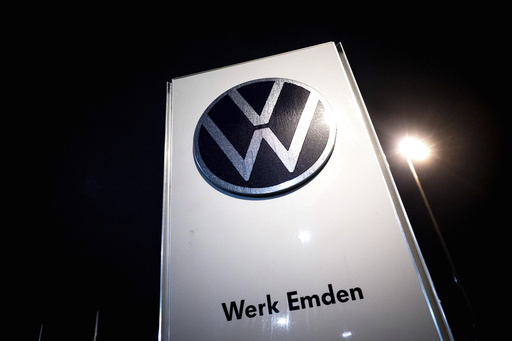
Volkswagen workers in Germany commenced rolling two-hour strikes on Monday across nine different factories as a protest against proposed pay reductions and potential plant closures which the automaker claims are essential to manage a sluggish European automotive market.
The strikes included a significant demonstration at the Wolfsburg plant, Volkswagen’s main production facility, where employees voiced their opposition to management’s cost-cutting measures that could potentially lead to the company’s first-ever factory closures within Germany.
These “warning strikes” are a strategic move often employed during wage discussions in Germany and are part of ongoing negotiations for a new labor agreement, following the expiration of a required peace period that has prohibited strikes. The IG Metall industrial union, representing the workers, stated that further job actions could be announced as the negotiation process unfolds.
Volkswagen has proposed a 10% salary reduction for approximately 120,000 employees in Germany, highlighting that reducing factory capacity is unavoidable. Employee representatives claim that the company is currently considering the closure of three German plants.
Thorsten Gröger, the leader of IG Metall in Lower Saxony, where Volkswagen’s headquarters are located, emphasized that the company cannot ignore the impact of the walkouts. He warned that this could become one of the toughest challenges Volkswagen has faced.
While Volkswagen has yet to disclose specific details regarding its plans, the company is grappling with declining demand in Europe, rising operational costs, and intensified competition from Chinese car manufacturers. The company initially established factories to meet a European vehicle market that sold around 16 million units annually, but recent figures indicate a demand closer to 14 million, potentially costing Volkswagen around 500,000 vehicles each year, as reported by Thomas Schaefer, head of the Volkswagen brand.
Previously, strong profits from the Chinese market helped offset these challenges, but Schaefer acknowledged that it is now crucial to address these issues as market conditions have shifted.
Volkswagen contends that it needs to bring down costs in Germany to align with those of competitors and its own facilities located in Eastern Europe and South America. Daniela Cavallo, the chief employee representative, expressed that workers should not be made to bear the burden of management’s shortcomings in creating appealing products or developing a more affordable entry-level electric vehicle.
The strikes began at a plant in Zwickau, eastern Germany, with further disruptions planned at factories in Braunschweig, Chemnitz, Dresden, Emden, Hanover, Kassel, and Salzgitter.
Negotiations are set to resume on December 9, as both sides look to navigate this increasingly complex labor dispute.
